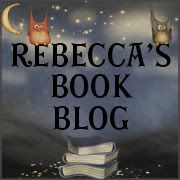Tracy Barrett is the author of Dark of the Moon, a retelling of the myth of the minotaur. I previously reviewed the book and you can read my review here. To learn more about Tracy and her books, you can also visit her website.
What inspired you to write a more "realistic" version of the myth of the minotaur?
The minotaur myth as we know it is a garbled retelling by Greek travelers (traders, sailors, whatever) of the religion of ancient Crete, an island that is now part of Greece but that in the Bronze Age was a foreign country to the mainland Greeks. The Cretans worshipped the moon, perhaps as a cow, and the sun in the form of a bull-god. The Greek travelers must have seen a ritual where a shaman or priest wearing a bull's-head mask ritually wed a priestess of the moon, and came back with a strange story of a half-man, half-bull that ate people (the Cretans might have practiced human sacrifice, but even if they didn't, it was in the best interests of the Greeks to cast their rivals, the Cretans, in the worst possible light).
The story we have is full of inconsistencies.
Why would you keep a man-eating monster in a labyrinth? The minotaur wasn't too bright but surely after years and years of confinement, he'd find his way out.
Why would Theseus sail home with a black sail on his ship, after telling his father that a black sail would mean that he had died? Would you really forget to hang a white sail?
Why would his father commit suicide upon seeing the black sail, when he had sent his son (whom he hadn't bothered to meet until he was a teenager) to certain death? Could he possibly have been surprised that he had supposedly died?
Why did Theseus take Ariadne, the minotaur's sister, away with him, and then dump her on the island of Naxos? If he didn't want her, why not just leave her on Crete?
And also, there are no motivations given for the actions of any of the characters in the story, except Theseus, whose motivation in killing the minotaur is to avoid getting eaten.
So I wanted to straighten out those inconsistencies, try to imagine a religion that could have given rise to the rituals that the Greeks so badly misunderstood, and make the characters in the drama more human by figuring out why they acted the way they did.
What kind of research did you do to try and make the characters and setting as accurate/realistic as possible?
I did lots and lots and lots of research! It helps that my major in college was Classics and that I've spent time on Crete. But I still had to look up a lot of things, and many facts that I found gave me ideas, and then I had to research those ideas.
I started with The White Goddess by Robert Graves. I checked out the six mammoth volumes of The Palace of Minos by Sir Arthur Evans, the archaeologist who did the first real excavations there, and studied them intensively. I mostly used books, but I also did a lot of on-line research, including Google Earth to see the places where the story takes place.
I loved how the novel was told from the alternating viewpoints of Theseus and Ariadne. Do you have a favorite of the two main characters, or did you like them both equally? Was it difficult to make their voices sound different from each other?
I originally planned to have the whole story told in Ariadne's voice, but I soon figured out that she had led such a sheltered life that she couldn't really comment on it; she knew nothing different so it wouldn't occur to her to discuss the palace, her brother, her religion. I needed a narrator who was clueless about Crete so someone could explain things to him, and thus to the reader. So I brought in Theseus.
I like them both, but I think I like Ariadne more. She's so courageous and loving, aware of her duty but also aware that the world is changing and that she'll have to change along with it.
It seemed natural for Ariadne, who is mired in the past, to use the past tense in her narration, and Theseus, who's eager for the future, to use the present tense. I noticed after I had finished the first draft that Ariadne is always questioning herself, her mother, her life, and Theseus rarely does. So I went through and took out the few times that Theseus questions himself, to make the contrast between the two of them even stronger.
What are some of your own favorite books and authors?
I'll limit myself to just a few: Linda Sue Park, M. T. Anderson, Philip Pullman, Katherine Paterson.
When you are not writing, how do you enjoy spending your time?
I don't have much time! I'm also a college professor, but I'm quitting in May (see my blog, Goodbye, Day Job!). Maybe I'll be able to answer this question better after that, but at this point I can list reading, reading, reading, and knitting. I used to be a skydiver, but that was long ago, and I don't plan to pick it up again after I retire!
Subscribe to:
Post Comments (Atom)












No comments:
Post a Comment